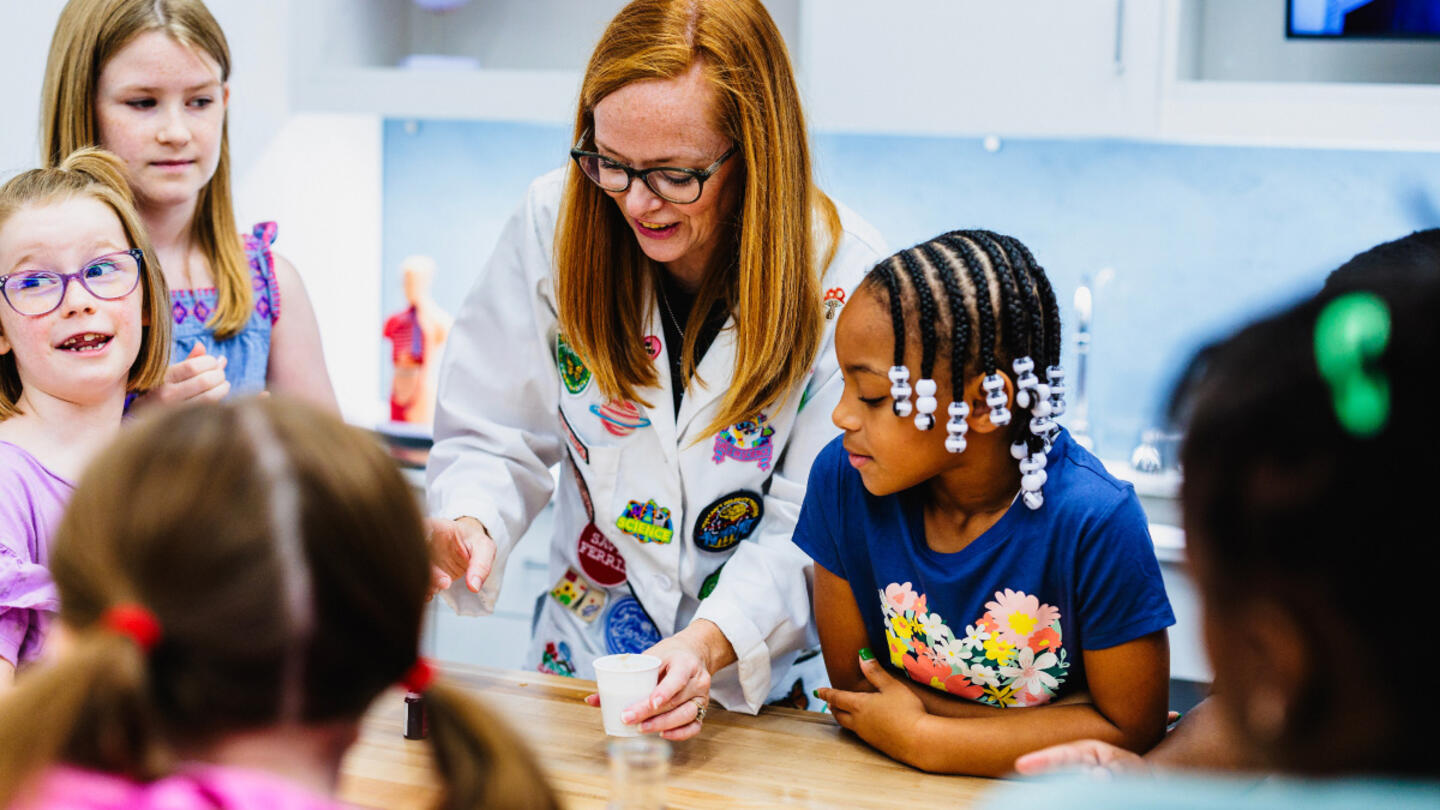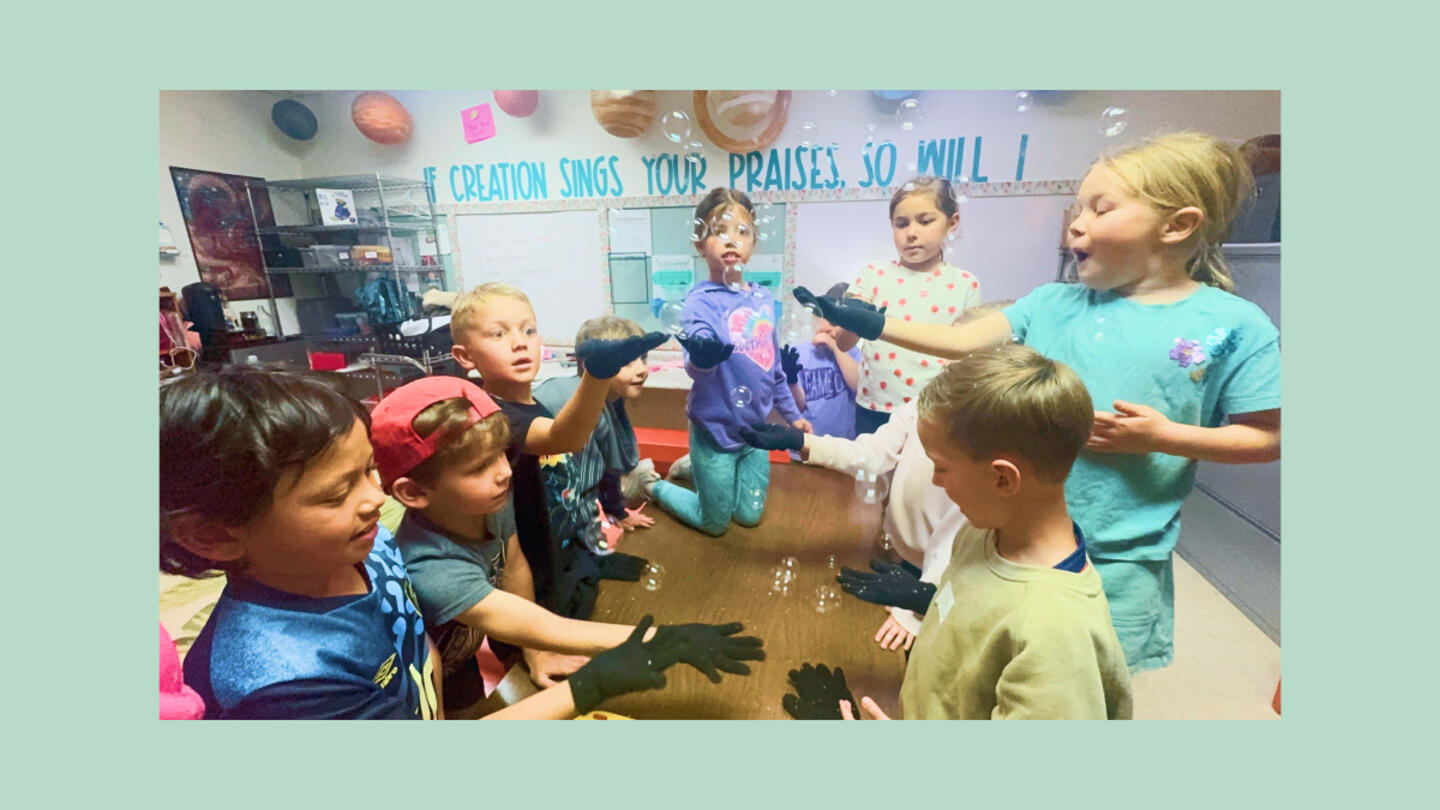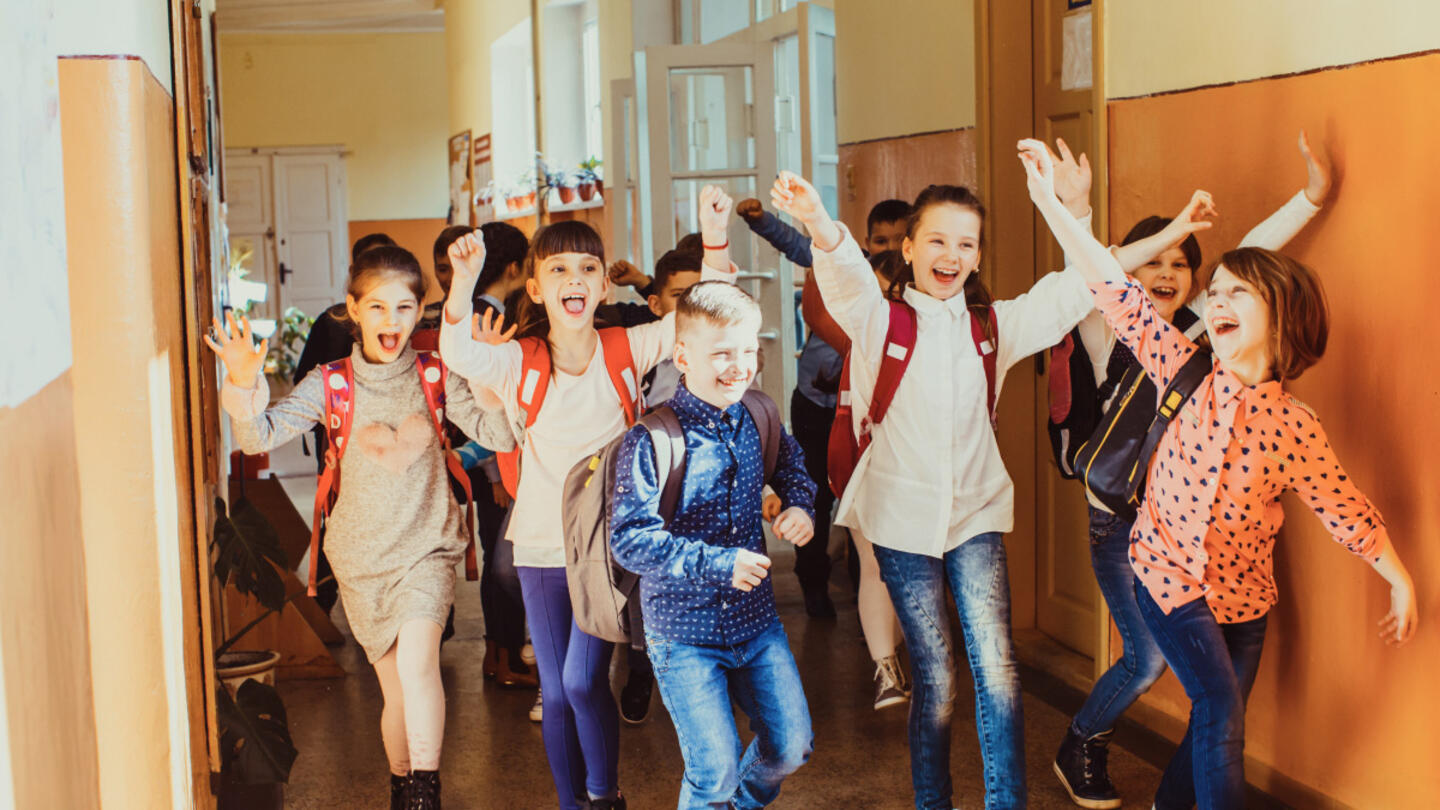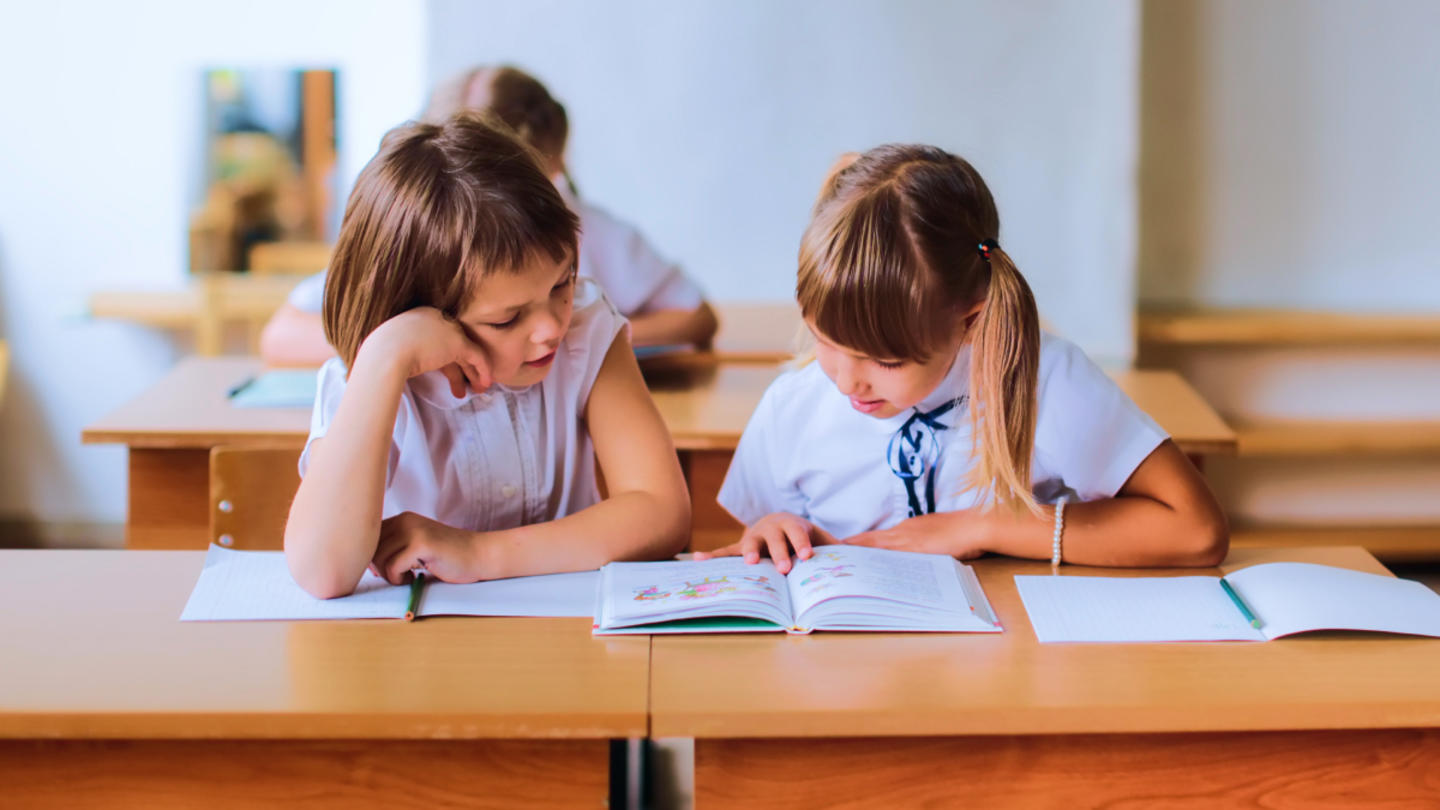Parents and educators know that at the height of the pandemic, many young learners were falling behind. Jessica Ramsay, however, turned that period into an opportunity to strengthen local students and help them become more confident, even after quarantines were over.
Ramsay, an educational entrepreneur and the founder of Farmhouse Phonics, spent nearly 20 years in the Wichita, Kansas-area school system. When the pandemic hit, she was renovating a farmhouse on her property and suddenly had an epiphany: This could be a place for kids to come and address learning gaps.
“Sometimes kids can be casualties of curriculum,” she said. “Even though they’re in a classroom all day, they aren’t learning and absorbing and taking it all in as some of their peers are. So oftentimes, that means they need more.”
Ramsay quit her role in the public school system and instead made her farmhouse into a space where students could access individualized instruction, one-on-one sessions, and a warm, welcoming physical environment. Farmhouse Phonics is a literacy-focused extracurricular learning service that works with students after their main school day, allowing families to supplement whatever education style they feel best serves their child.
In doing so, Ramsay is showing that it’s not about individual vs. group instruction or public vs. private. Instead, Farmhouse Phonics demonstrates how all manner of education styles can work together to complement and strengthen each other while empowering students and educators alike.
Giving educators the tools they need to thrive
Farmhouse Phonics doesn’t aim to replace other education styles. Instead, it’s strengthening them.
Individualization, creative learning methods, and flexible pacing don't need to compete with a student's main school. Extracurricular educational models provide a mutual benefit to any established school by adding to what the student is learning during the school day. Ramsay works with students from public schools, private schools, homeschools, and everything in between.
She also collaborates with teachers, who often recognize the needs of individual students but don’t have the time or resources to work with them on a one-on-one basis. That’s where Ramsay comes in.
“When a kiddo is having a hard time, it’s not always the parent that is the one to note it,” she said. “Usually, in my experience, a teacher lets the parent know, and then the parent reaches out to me, and it only makes sense that we all work together.”
In doing so, Ramsay is able to create a mutually beneficial relationship in which she can support and empower educators to better serve a broader range of students.
“I’ve had teachers email me and say, ‘I wish I could have had some more time to sit down with [a student]. I think he was getting it, but he just didn’t really solidify it. Could you work with him?’” Ramsay said. “I think that’s super helpful because some kids absorb instruction really quickly and others don’t. That doesn’t mean there’s necessarily something diagnosable. That’s just how we learn.”
This is true of both teachers employed by the school system and homeschool educators. In the latter case, Ramsay educates not just the kids but also their parents. She allows homeschool parents to accompany their children to Farmhouse and provides them with learning materials and lesson plans to help them feel better equipped as independent educators.
“There are times when whoever the educator is in the home doesn’t have the ideal skill set or needs some help, and I can help with that too,” Ramsay said. “Not only am I teaching the student, I’m teaching the parent as well.”
Forget grades. Here, learning is about real-life impact.
The individualized flexibility of Farmhouse Phonics also allows Ramsay to do away with one-size-fits-all progress measurements. Rather than assess students by metrics, she examines who they are as individuals and how equipped they are to use their skills in daily life.
She works with each student to assess what teaching style suits them best, allowing her to meet them at their level, going at a pace that works best for them, and addressing their unique needs and skills. She likened this to being an educational personal trainer of sorts: “You play a sport and work with a personal trainer, or if you’re a softball player and you hire a coach — in that [same] way, I can work with anyone, of any age, and I meet the student where they are.”
Because of this, Ramsay doesn’t categorize students by grade level or other traditional groups. Instead, she looks at each student holistically and examines where they uniquely shine and what skills they need help with.
“I don’t teach fourth grade to fourth graders,” she said. “I teach any-aged kid where they are.”
This one-on-one style gives Ramsay the luxury of using various learning methods, including game-based learning or project-based instruction. She recognizes each learner on an individual level and identifies their unique skills and strengths — helping them become more confident in their abilities and more driven in all aspects of life, both inside and outside the classroom.
Sign up for Stand Together's K-12 newsletter and get stories, ideas, and advice from changemakers who are transforming education across the country.
Ramsay described the environment inside the farmhouse as one in which the instructor is literally on “an equal level” with the student — who is often learning while lounging on the floor in slippers, without the formality of a standard classroom. As a result, learners have more autonomy over their educational experience.
“The kids have more buy-in,” Ramsay said. “It’s not something they have to sit and figure out on their own. It’s me with them, helping them … and they know that I’m not holding them accountable to master this skill 10 minutes after I taught it.”
By working side-by-side with students to build an educational journey together, Ramsay is redefining the end goal of education. Rather than a metric or test score, she aims for learners to demonstrate that they can apply these skills in everyday life.
“Are they able to use the skills I taught them to produce reading and writing later on down the road?” she said. “I’m constantly cycling back through to make sure my kiddos are mastering those skills and are able to apply their knowledge to life in general.”
Ultimately, Ramsay hopes to bring about a mindset shift, not just in young students, but in families and educators writ large. While still working in the public school system, during parent-teacher conferences, many parents would identify a skill their child was struggling with as a skill they had also struggled to master in school, insinuating that being bad at math or a terrible speller was inevitable. But Ramsay thinks differently.
“That is just an unfortunate situation where someone didn’t stop and teach exactly what the person needed when they needed it,” she said. “When you’re in a group of people that you think are smarter than you, it’s hard to try. It’s hard to stay motivated. It’s hard to stay confident. … But just because you didn’t master the skill with your peers does not mean you never will.”
This is what happens when educators work together
Since launching Farmhouse Phonics full time in 2021, Ramsay has consistently worked with 20-25 students a week. She has never had a student fail to progress within the program, which she considers a “wild success.”
“I have kids from kindergarten to high school right now, and each is on a different learning path,” she said. “Everybody is growing forward every session. They are getting closer and closer to the confidence in school that will help them in their daily lives.”
She often works with students for two or three consecutive years — but she knows that the best outcome is when students no longer need her help and graduate from Farmhouse Phonics.
Equally important to her is evaluating how much she has been able to help educators become empowered. “Every classroom teacher is just doing the very best they can,” she said. “It is so hard to meet every need of every learner within your classroom by yourself. It’s almost impossible. Sometimes what is best for the kid is being able to work with someone else.”
Ramsay is using Farmhouse Phonics to create a local ecosystem of resources and support for all educators to draw from. On the Farmhouse Facebook page, she regularly shares lesson plans, games, and other ideas. The page has spread to schools and educators all over the region, including in school districts Ramsay has never worked in.
“That’s the thing about teachers,” she said. “Everybody I’ve met just wants what’s best for kids. It takes a giant team of us. So when parents are willing to bring their kids to me and teachers are willing to help the kid out, it’s a win-win.”
***
Farmhouse Phonics is supported by VELA, which, as part of the Stand Together community, supports everyday entrepreneurs who are boldly reimagining education.
Learn more about Stand Together’s education efforts, and explore ways you can partner with us.

This colearning space has the potential to bridge the divide between public and private education.

New Johns Hopkins data shows homeschooling’s recent surge has transformed the education landscape.
Step 1: Find the best learning environment for your child. Step 2? Figure out how to pay for it.

Here’s what happens when AI replaces teachers.
